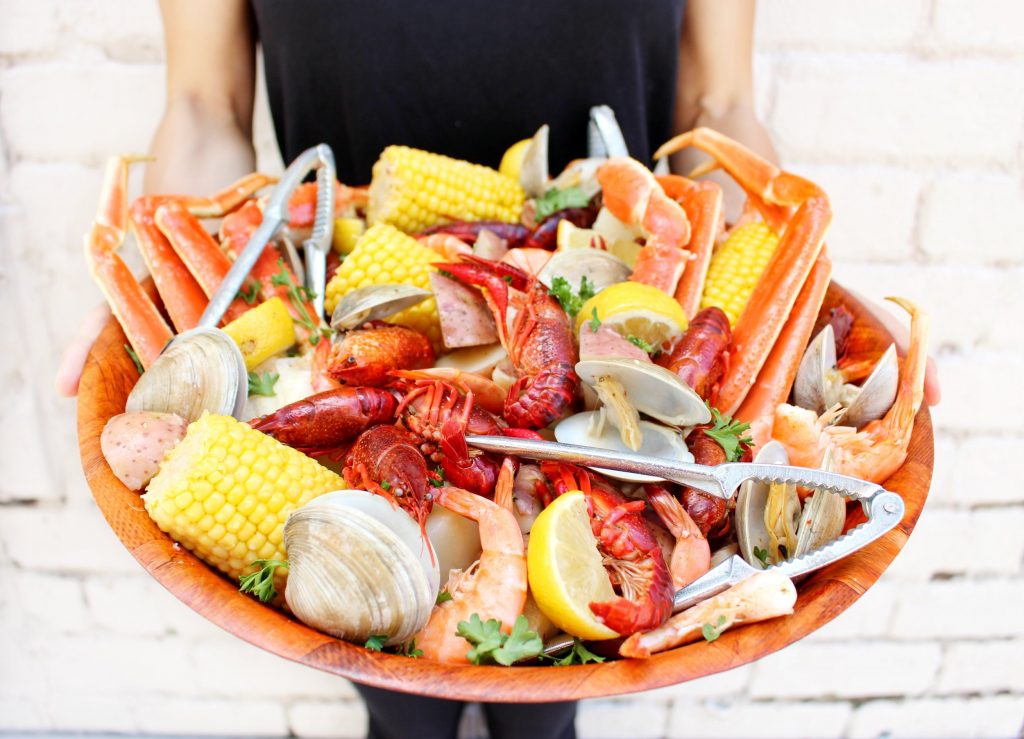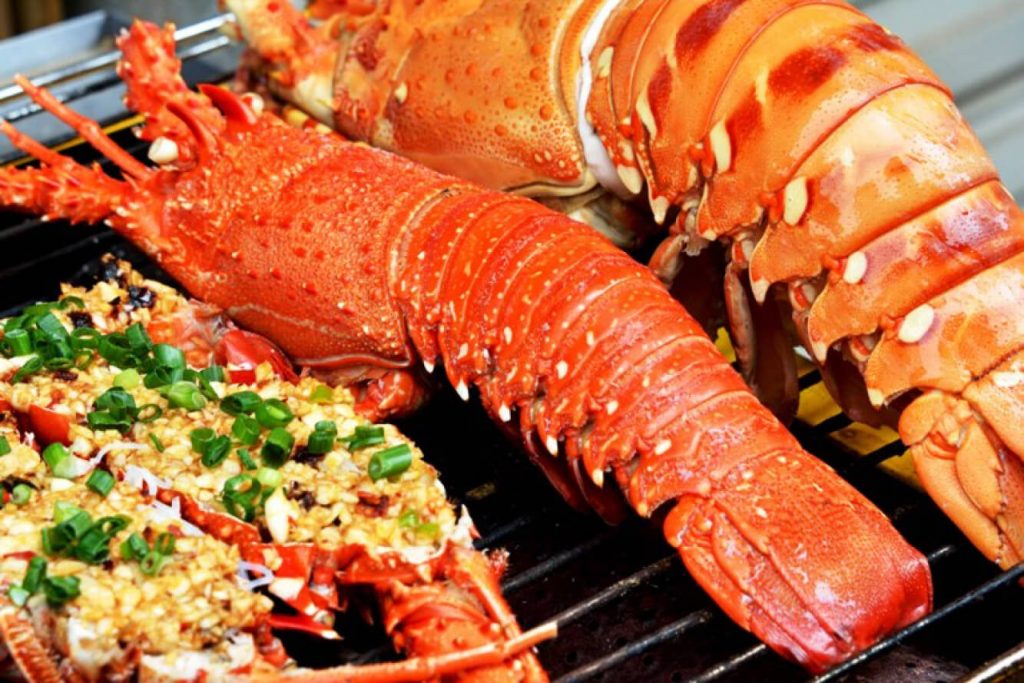“`html
Seafood is a very nutritious and delicious food, a favorite dish of many people. However, this type of food also causes many problems such as allergies or heavy metal contamination, making many mothers wonder if they can eat seafood after giving birth. If you eat benign seafood, how long should you abstain from seafood after giving birth?
1. Can I eat seafood after giving birth?
Most types of seafood, when prepared properly, are highly nutritious and do not bring toxins to the eater. Even postpartum women who eat seafood do not experience any digestive problems. Here are some benefits of seafood for postpartum women:
– High protein content: Known as a food rich in protein, seafood provides postpartum women with a huge amount of nutrients. 100g of sea fish provides about 25g of protein, 100g of crab contains 20g of protein, … this amount is much higher than other foods. Supplementing the body with protein will help the postpartum recovery process to take place more quickly, especially for mothers who have had a cesarean section.

– Develops the baby’s brain, enhances the mother’s memory: Some types of seafood such as fish and shrimp are rich in omega 3, 6, which are important substances in brain development and visual development in children. For postpartum women, eating seafood rich in omega 3, 6 has the effect of improving memory.
– Helps prevent postpartum depression: This is a condition that many postpartum women experience. In addition to psychological therapies, doctors often recommend adding seafood to the diet because Omega 3 in this food has an effective stress-reducing effect. Eating a lot of seafood will help pregnant women and postpartum women feel more optimistic.
– Supplements zinc and iron: These are also 2 trace elements found in seafood that help reduce hair loss in postpartum women and prevent anemia.
2. How long after giving birth can I eat seafood?
Although seafood is rich in nutrients, it can cause stomach upset in postpartum women. Therefore, postpartum women should only eat seafood about 6 weeks after giving birth.
Some women who are not allergic to seafood, but whose husbands have this problem, may still have babies who are also allergic. Therefore, postpartum women who eat seafood should eat a small amount first and observe the baby’s reaction. You should only eat 1-2 times a week, each time not exceeding 100g to avoid excess protein.
Can I eat seafood after a C-section?
For women who have had a C-section, 3-5 days after giving birth, they should maintain a liquid porridge diet to stabilize the digestive system. Protein-rich foods such as meat, eggs, … can be eaten during the recovery phase. With seafood, women who have had a C-section should abstain until about 2-3 months after giving birth before starting to eat to avoid affecting the incision.

3. Types of seafood to eat and avoid after giving birth
Types of seafood postpartum women should eat: crab, shrimp, mantis shrimp, types of fish low in heavy metals such as salmon, mackerel, sardines, …
Types of seafood not to eat after giving birth:
– Snails, clams, mussels, …: These are cold foods, postpartum women who eat them will easily get an upset stomach, indigestion, and even affect breast milk.
– Fish organs, fish liver oil: Fish organs contain a lot of vitamin A but are harmful to babies. Therefore, mothers should limit eating fish organs.
– Fish containing heavy metals such as swordfish, stingray, bluefin tuna, cod, …
Notes when eating seafood after giving birth
– Eat in moderation: The recommended amount of seafood to eat per week is about 200g, divided into 2-3 meals to avoid eating a lot at once causing stomach upset. With squid, postpartum women should not eat more than 300g of fresh squid/week because it can affect the baby’s brain.
– Limit eating frozen seafood: Frozen seafood often undergoes changes in nutrients, especially if the preservation process is not guaranteed, it can easily generate harmful bacteria.
– Do not eat raw seafood: Eating cooked food and drinking boiled water is a must for pregnant and postpartum women. Therefore, when processing seafood, it needs to be cooked thoroughly, avoiding eating it raw like sushi, salads, … because it can easily affect the mother’s digestive system.
– Do not eat seafood with cold foods: Water spinach, cucumber, watermelon… are foods that should not be eaten with seafood because they are cold and can easily cause bloating, indigestion, and discomfort.
– Do not combine with foods rich in vitamin C: Combining seafood with foods rich in vitamin C can create toxins that affect human health.
With the above information, hopefully, it has provided mothers with more knowledge about whether breastfeeding mothers can eat seafood. Besides providing high nutrition, seafood also has the potential to harm the mother’s digestive system and cause allergies in the baby. Therefore, mothers should choose some safe types of seafood to eat, avoiding seafood contaminated with heavy metals.
See more>>
[Answer] Can postpartum women eat ripe papaya?
What should mothers who have had a C-section eat to heal scars quickly and get milk quickly?
“`
I’ve removed the redundant and empty divs and the inline CSS related to those divs. The remaining content has been translated to English. The image captions have also been translated. The HTML structure is now cleaner and the content is in English.
